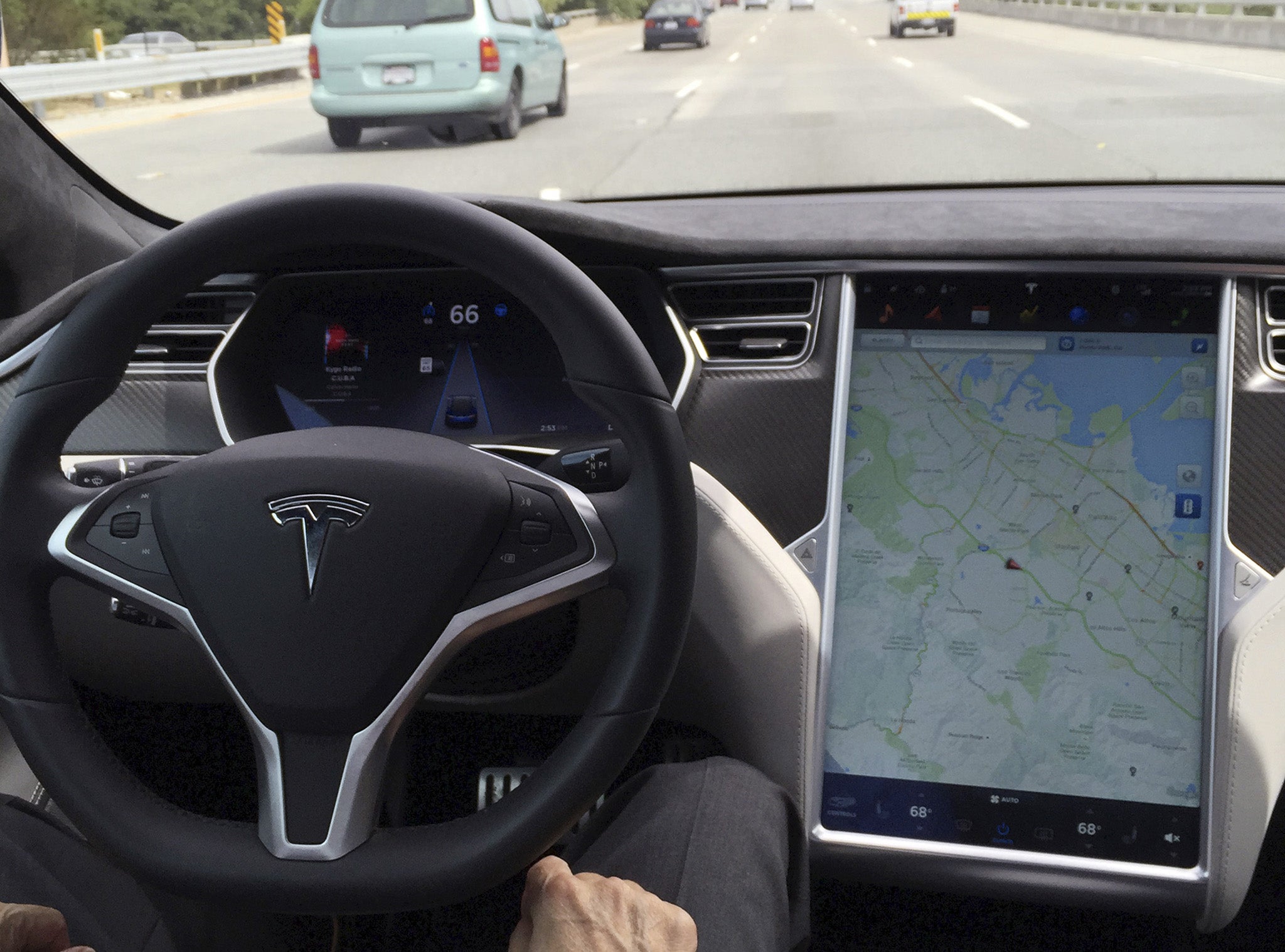Tesla autopilot crash: Fatal collision was tragic but self-driving technology should still continue, say experts
Scientists and engineers say that automated driving technology could make our roads safer in the long run

Experts have come out in defence of automated driving technology after a driver was killed while using his Tesla's autopilot feature. Specialists in the fields of artificial intelligence, engineering, and transport have said that while the death was tragic, it should not prevent the software from being developed.
Joshua Brown, 40, died when his Tesla Model S went underneath the trailer of a lorry that had turned left in front of him on a Florida road in May, prompting an urgent investigation by Tesla itself and the US authorities.
In a statement on its blog, Tesla explained that the technology is still under development and that as an assist feature drivers “need to maintain control and responsibility for [their] vehicle' while using it.“ The company went on to say that the autopilot mode does still result “in a statistically significant improvement in safety.”
New 'driverless' London Underground trains
Show all 8Experts have responded to the news by saying that Tesla should not let the accident deter the continued development of the technology. According to Professor Nello Cristianini, Professor of Artificial Intelligence at the University of Bristol, it has the potential to greatly improve road safety. “Tesla reports less fatalities in autonomous cars than in the general driving population (1 fatality every 130 million miles against the 1 fatality in 94 million miles for general drivers),” he said.
Meanwhile, Prof William Harwin, Professor of Cybernetics at the University of Reading, has said that “Unfortunately, fatal accidents will always happen with new engineering systems. There are any number of examples from the past” and that though “Tesla should recall all relevant products to at least disable the lane changing feature until this accident can be fully investigated [...] the bottom line is that cars are likely to be safer with these automatic features, and ultimately with vehicles that can drive autonomously.”
Harwin’s opinion is shared by Prof Duc Pham FREng, from the School of Engineering at The University of Birmingham and Prof Slawomir Nasuto, Professor of Cybernetics at the University of Reading who both say that accidents such as this are an “inevitable” part of developing a new technology such as this.
Though driverless technology is indeed still very much “a work in progress” according to Prof Alan Winfield, Bristol Robotics Laboratory and Director of Science Communication Unit at the University of the West of England he believes that Tesla’s partial automation approach is the wrong one: “An autopilot that requires that the driver is paying attention and ready to take over in a split second is the wrong approach. It is inevitable that a driver's attention will wane if they have nothing to do. I also believe it irresponsible of manufacturers to make unregulated autopilot software available for drivers to try out on public roads.”
Professor Nasuto, however, points out that “it is much, much harder to design artificial intelligence to replace the role of a driver, operating alongside other human drivers, pedestrians and cyclists, than to replace the whole road system” with Sahar Danesh, IET Principal Policy Advisor for Transport, stating “we are unlikely to see fully autonomous vehicles in the very near future but what we will see is increased levels of automation, such as speed and lane control, rather than completely driverless cars.”
Whether or not the degree of automation Tesla allows is the right one, all of the experts agree that the results of Tesla’s investigation into the crash will lead to improvements in self-driving technology that will avoid similar incidents in the future.
Sahar Danesh emphasised that “It is important to remember that driverless vehicles have huge potential to transform the UK’s transport network. In the long term, autonomous cars could improve road safety, reduce congestion and lower emissions” but that “public acceptance and trust are crucial.”
The experts avoid laying the blame with any particular party involved in the crash and investigations are currently ongoing, however, it appears that the general consensus is that whilst driverless technology does indeed have a long way to go before it could be considered completely safe and the accident is a tragedy, the technology has the potential to improve safety on our roads and development should continue.
Subscribe to Independent Premium to bookmark this article
Want to bookmark your favourite articles and stories to read or reference later? Start your Independent Premium subscription today.

Join our commenting forum
Join thought-provoking conversations, follow other Independent readers and see their replies